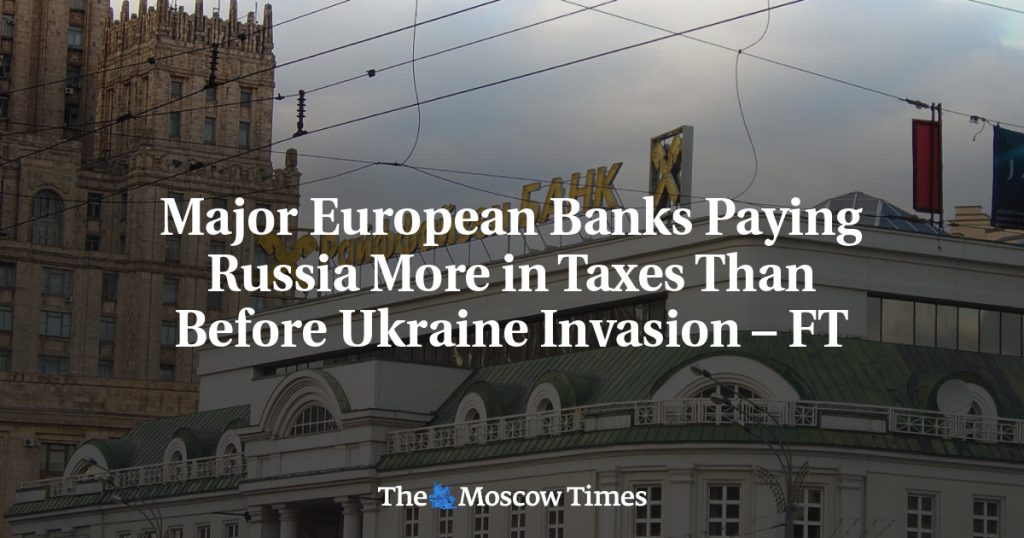Major European banks operating in Russia paid the government four times more in taxes in 2023 compared to the year before the country’s full-scale invasion of Ukraine. The seven banks, including Raiffeisen, UniCredit, and ING, paid around 800 million euros in taxes last year, up from 200 million euros in 2021. Despite the increase in taxes paid, the banks reported a combined profit of over 3 billion euros, although some funds are restricted from being withdrawn due to wartime restrictions on dividend payouts.
These taxes paid by major European banks represent approximately 0.4% of Russia’s non-energy budget revenues projected for 2024, showcasing the significant role foreign companies still play in supporting Moscow’s financial stability amidst Western sanctions and the departure of foreign companies following the invasion of Ukraine in 2022. Despite the sanctions cutting off Russian banks from the Swift international payment system, Western lenders have become more appealing to Russian clients seeking to maintain connections to the West, ultimately benefiting the banks themselves.
One example of a bank benefiting from its operations in Russia is Raiffeisen Bank International (RBI), which saw its profits in Russia more than triple to 1.8 billion euros between 2021 and 2023, comprising half of RBI’s total profit. Despite intentions to exit Russia, Raiffeisen paid an additional 47 million euros as a windfall tax imposed by the Kremlin in 2023. The Financial Times report did not include U.S. banks like Citigroup or JPMorgan, as their Russian results were not comparable on the group accounts used for calculations.
Citigroup paid Russia $53 million in taxes in the previous year, while JPMorgan paid $6.8 million, according to calculations by the Kyiv School of Economics. The increase in profitability and tax payments by major European banks operating in Russia reflects the ongoing financial ties between foreign companies and Moscow despite geopolitical tensions and sanctions. Despite Western sanctions and restrictions, these banks continue to contribute to Russia’s tax revenues and financial stability, albeit under a changing geopolitical landscape.
The substantial tax payments by major European banks in Russia illustrate the resilience of financial ties between foreign entities and Moscow, highlighting the steady support that foreign companies provide to Russia’s economy. The significant increase in profitability and tax contributions by these banks, despite ongoing geopolitical tensions and sanctions, points to the continued importance of foreign businesses in sustaining Russia’s financial system.
In conclusion, the substantial tax payments and profitability achieved by major European banks in Russia underscore the enduring financial relationship between foreign companies and Moscow in the face of geopolitical challenges. Despite sanctions and the crisis in Ukraine, these banks have managed to thrive and contribute significantly to Russia’s tax revenues, showcasing the interconnectedness of global financial systems and the complex dynamics at play in today’s geopolitical landscape.


